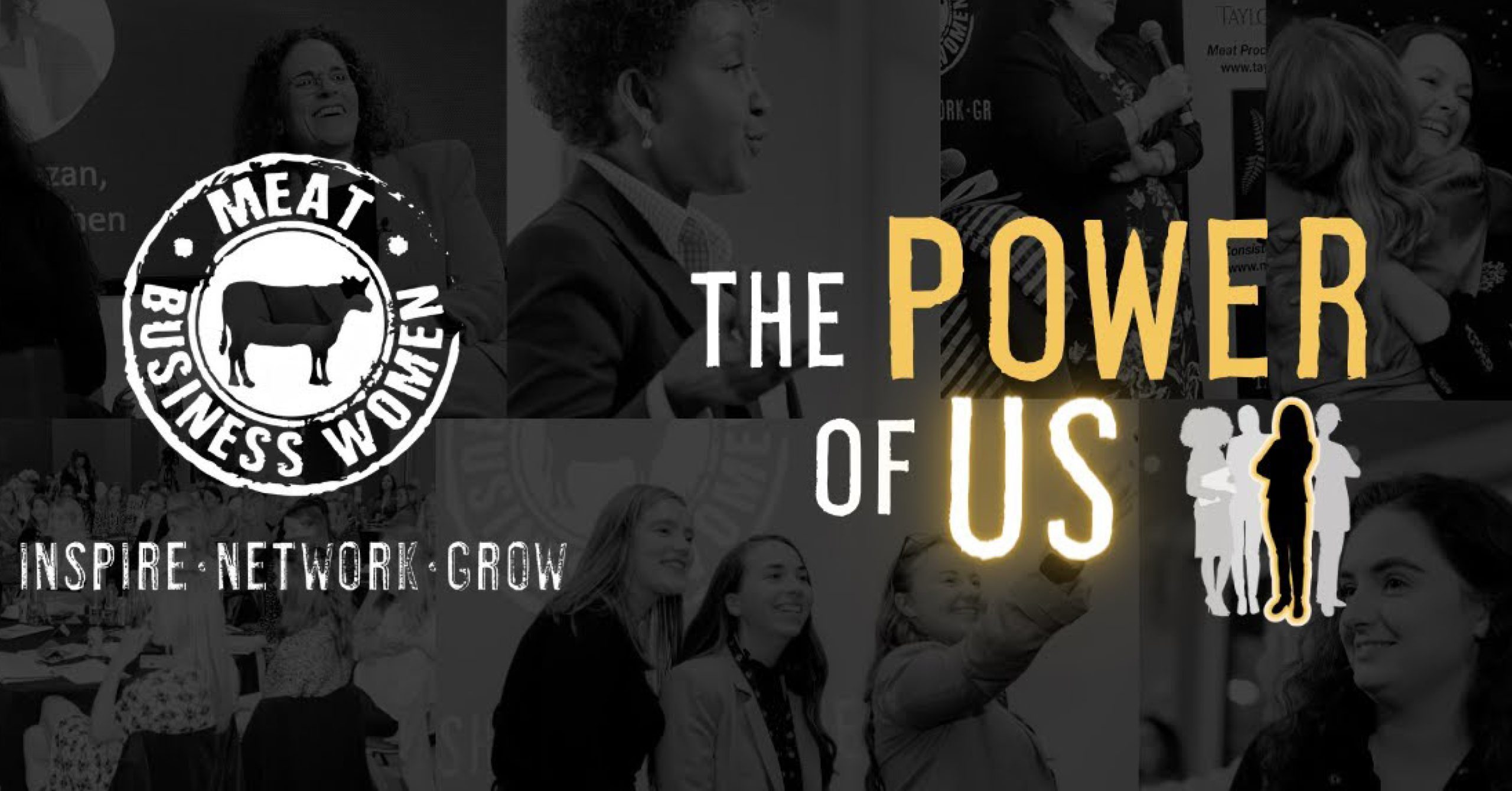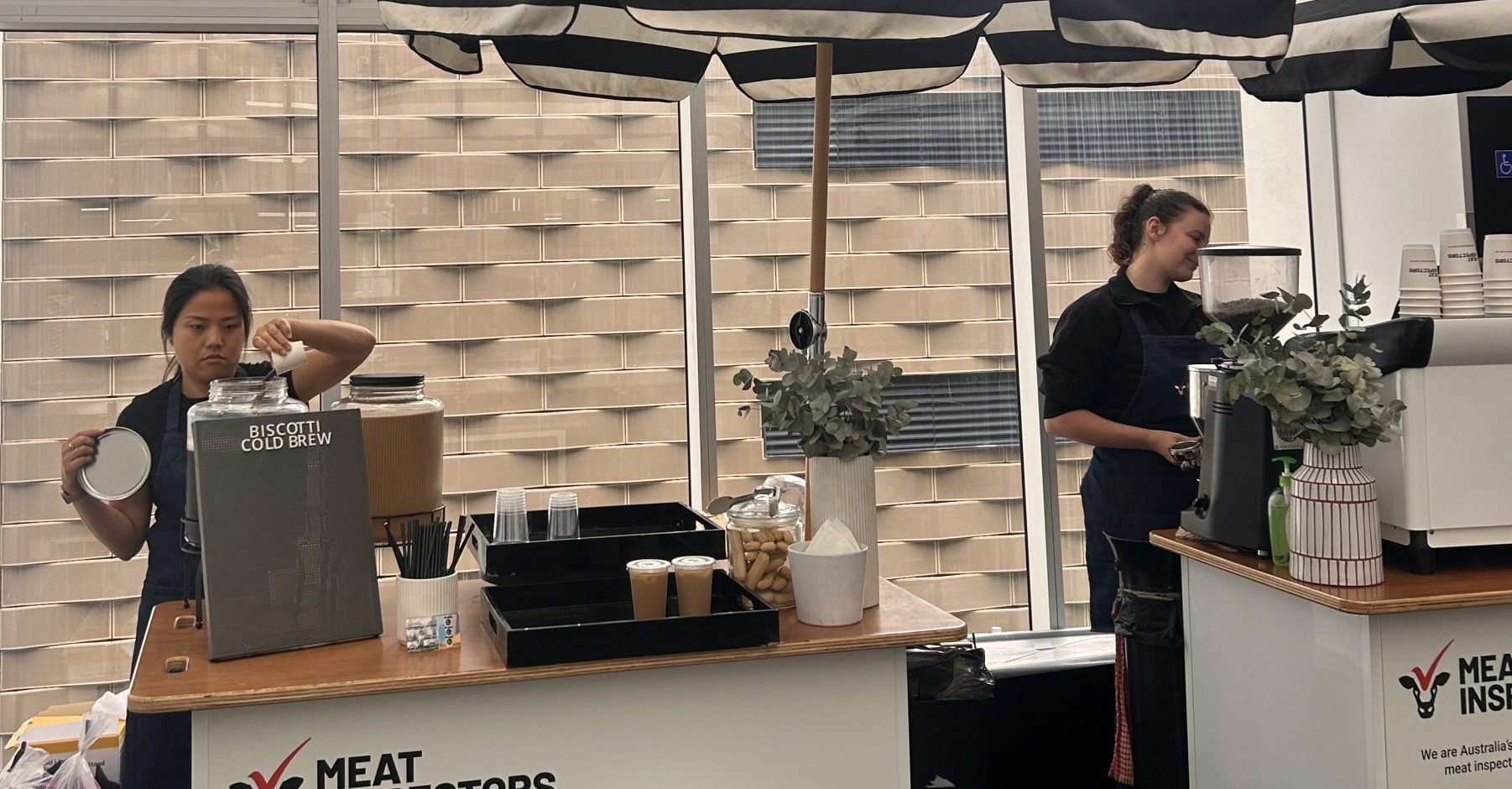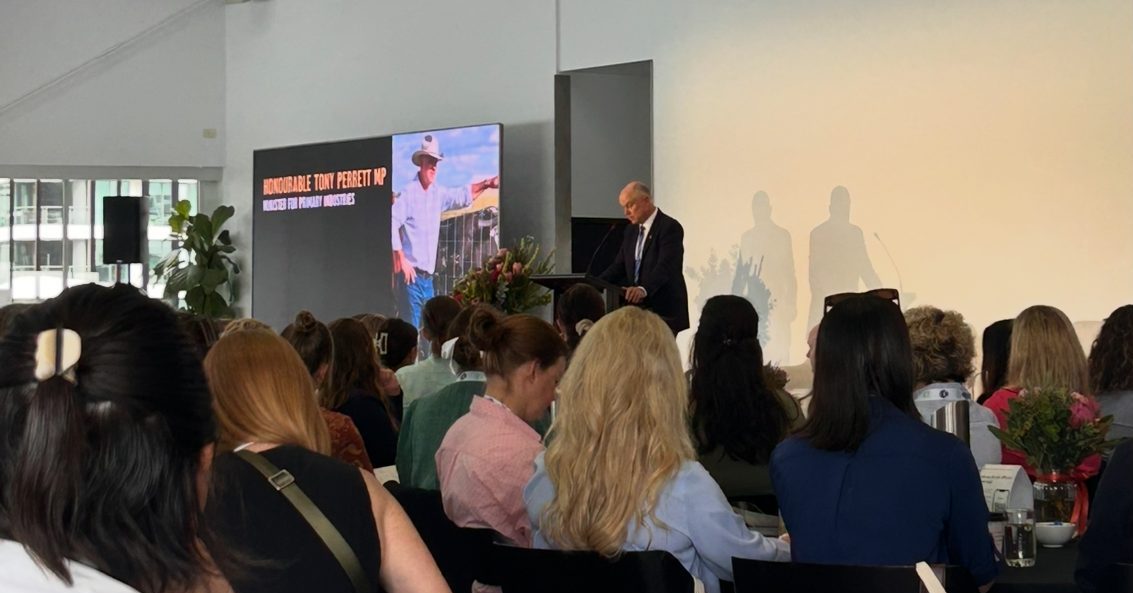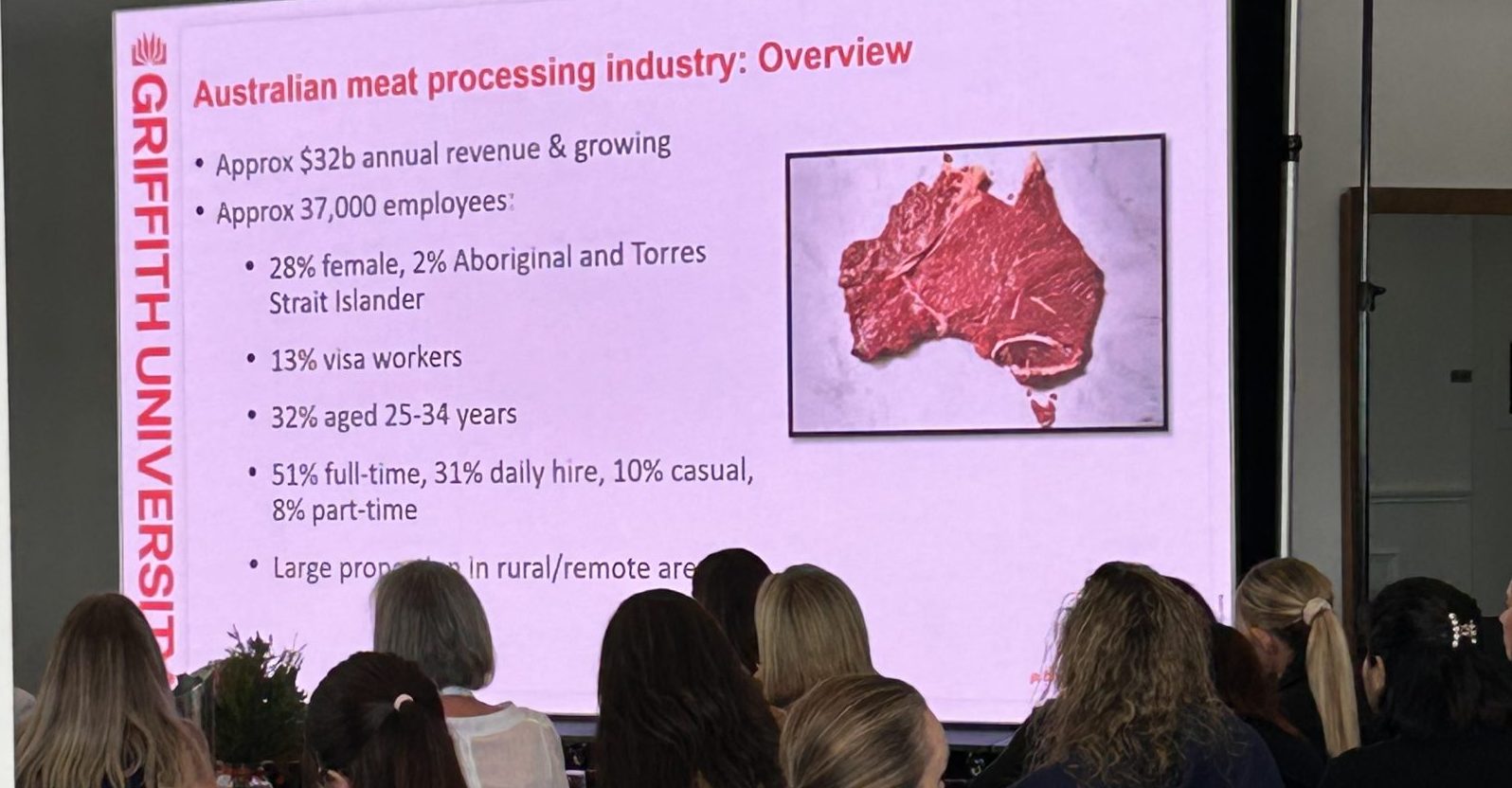 16
May, 2025
16
May, 2025
A cloudy day at Brisbane’s Portside was the setting for this year’s Meat Business Women – the national conference that brings together women from Australia’s thriving meat industry.
Sketch Corp’s Ayla and Helen attended the one-day event, connecting with business leaders and hearing insights on topics spanning diverse subjects including the financial situation of the protein supply chain, recruitment challenges facing meat producers and the importance of diversity and inclusion throughout agribusiness. With a busy agenda packed full of engaging speakers, here’s a selection of highlights from the day.
|
|
 |
Opening remarks – Hon Anthony Perrett MP, Minister for Primary Industries
Touching on the multiple significant weather events to recently impact the agriculture sector, Anthony Perrett spoke of the meat industry’s resilience and importance to Queensland – contributing billions of dollars each year to the state’s economy. “The meat industry is big business here in Queensland,” he said. “Our products are wholly sought after in global markets… Across the entire industry, the meat industry is the lifeblood of many areas.”
Meat Business Women update – Stacey McKenna, Australian Chair, Meat Business Women
Stacey McKenna gave an update on Meat Business Women’s growth, which reflects that of the wider meat industry. Meat Business Women itself has gone from having two corporate partners in 2024 to 18 today, and the Australian membership has grown from 30 Australian members to now more than 600 – part of a global network of 1900. The organisation has this year played an active role in the creation of the Food Business Charter – a global declaration that aims to achieve 40% female representation across the food sector by 2035. Profitability pressures, shifting consumer expectations and a struggle to attract talent are all significantly impacting the meat industry, and research shows businesses that include women are more enticing for potential employees – strengthening businesses for success. “Beyond the business case,” says McKenna, “inclusion is essential for our industry to remain relevant and sustainable into the future.”
 |
 |
Retail insights for 2025: A year of opportunity and challenges – Garth Francis, Analyst, MST Marquee
With retail spending currently up in 2025 but supermarket sales not yet ‘healthy’ when it comes to per-capita growth, Garth Francis shared the retail outlook for the year to come. In terms of the meat industry, he stated that the overall meat price inflation is slightly lower than general inflation. Australian beef meat exports are up by 16%, and the export market remains more lucrative than domestic for both sheep meat and beef. In terms of the overall outlook, Francis stated that protein producers will continue to experience higher operating costs, and competition in food markets will continue to broaden.
Mentorship & #ThePowerOfUs: Driving gender inclusion – Georgie Chapman, HR Legal; Professor Paula Brough, Centre for Work, Organisation and Wellbeing; Sarah Curran, Thomas Foods international
This panel discussion was facilitated by conference MC Shelly Horton, and saw the three women share their experiences and research around diversity in the workplace. Highlighting the need for mentors at every stage of a woman’s career, they covered the impact of unconscious bias and stereotyping in terms of business roles, promotions and career advancement, and emphasised the critical importance of allyship.
 |
 |
Managing workforce diversity & inclusion in the meat industry – Professor Paula Brough, Director of the Centre for Work, Organisation and Wellbeing, Griffith University
Remaining on the subject of diversity and inclusion, Professor Brough presented her research on what that looks like in the present-day meat industry. Examining how meat processor employers can develop and implement inclusive workplace practices, Brough’s team interviewed workers and managers at meat processing sites throughout Australia, and performed a systemic review of inclusion best-practices from the global meat industry. Of the 37,000 employees in the Australian meat processing industry, only 28% are women, and just 2% identify as Aboriginal and Torres Strait Islander. With a 62% staff turnover rate, recruitment and retention continues to be a serious issue for meat processors – something we’re witnessing across the board in agribusiness, and a pressing problem for the industry to solve.
 |
 |
Overall, Meat Business Women was a fantastic chance to connect with the women shaping the meat industry, and an opportunity to examine where there’s still work to do – particularly in terms of diversity and inclusion. With recruitment challenges still a hot topic for every agribusiness, we’re more committed than ever to helping ag companies build their brands, boost their market share and attract the talent they need to thrive. If that sounds like something we could do for your agribusiness, let’s talk.

